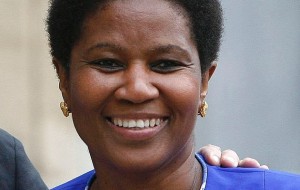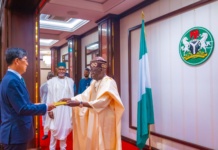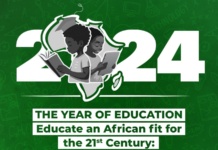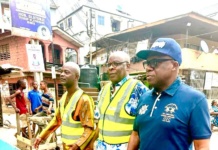Phumzile Mlambo-Ngcuka, the newly appointed Executive Director of the UN Entity for Gender Equality and Empowerment of Women (UN Women) and former Deputy Prime Minister of South Africa, has told interviewers that there is still a “lot to learn” in terms of safeguarding women’s rights in Africa and around the world, as the problems at stake become “more complex.”
Speaking to the Guardian newspaper, she said that there may also be “a little bit of fatigue” in how these issues are being confronted.
“Women’s issues have become more complex. If you look at new violations against women, like cybercrime-related gender-based violations, if you look at human trafficking, that is very well organised and well-funded, and it’s a push-of-a-button money exchange. There’s a sense in which we have to become smarter about how we fight these women’s issues and recruit new people.
“For instance, the law enforcers in many of our countries might not have moved as fast to identify these new crimes and deal with them as effectively as possible. So there’s a lot to learn, also for us as the women’s movements.”
She also dismissed the idea that African governments could legitimately ignore the women’s movement on account of it being a “western ideology” as outdated.
“I don’t think there are many governments who have a leg to stand on as far as that is concerned, which doesn’t mean it doesn’t happen, but they don’t have the courage to stand up and say that,” she said.
“The fact that, in many countries, sexism can be criminalised means that it is very difficult to be a leader and public representative and be blatantly sexist.”
She added: “You also need to engage with traditional institutions. In many countries there are organised traditional authority institutions; one needs to engage with them head on because not all members of those institutions are backwards in their thinking.
“There’s still some people you could actually win over and they become the inside voice in those institutions to advocate for a more gender-responsible approach”
UN Secretary General Ban Ki-moon announced Mlambo-Ngcuka’s appointment as head of UN Women on 10 July, praising her “combination of strategic leadership, consensus building and hands-on management experience.”
She was the first woman to hold the position of Deputy President of South Africa from 2005 to 2008 under Thabo Mbeki, and also served as Deputy Minister in the Department of Trade and Industry, Minister of Minerals and Energy, and briefly as acting Minister of Arts, Culture, Science and Technology.
When Mbeki was ousted by the African National Congress, it also meant the departure of Mlambo-Ngcuka. She told the Guardian that she does not believe her gender was a factor.
Last year, another South African woman, Nkosazana Dlamini-Zuma, was elected chair of the African Union.
Having left office, Mlambo-Ngcuka established the Umlambo Foundation in 2008 to provide support to schools in impoverished areas in South Africa through mentorship and coaching for teachers and in Malawi through school improvements with local partners.
She is also a former teacher, and led a gender-equality organisation during the racial apartheid era. Unsurprisingly, education is her main point of emphasis.
“Education for me is a cross-cutting priority. It is the equaliser, not only for girl-children but for all the women who need second chances.”










